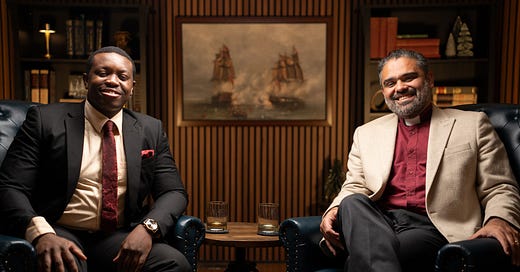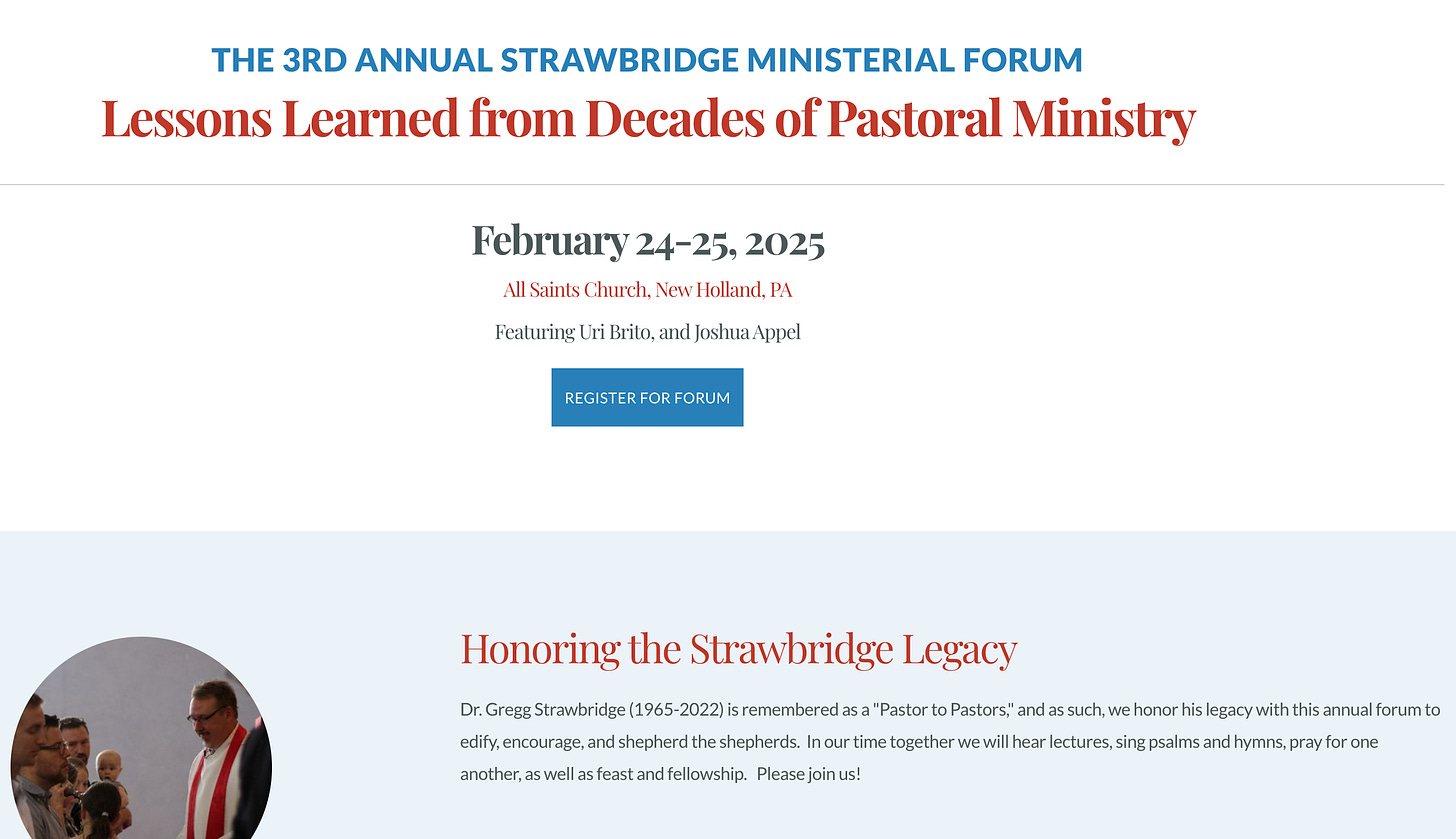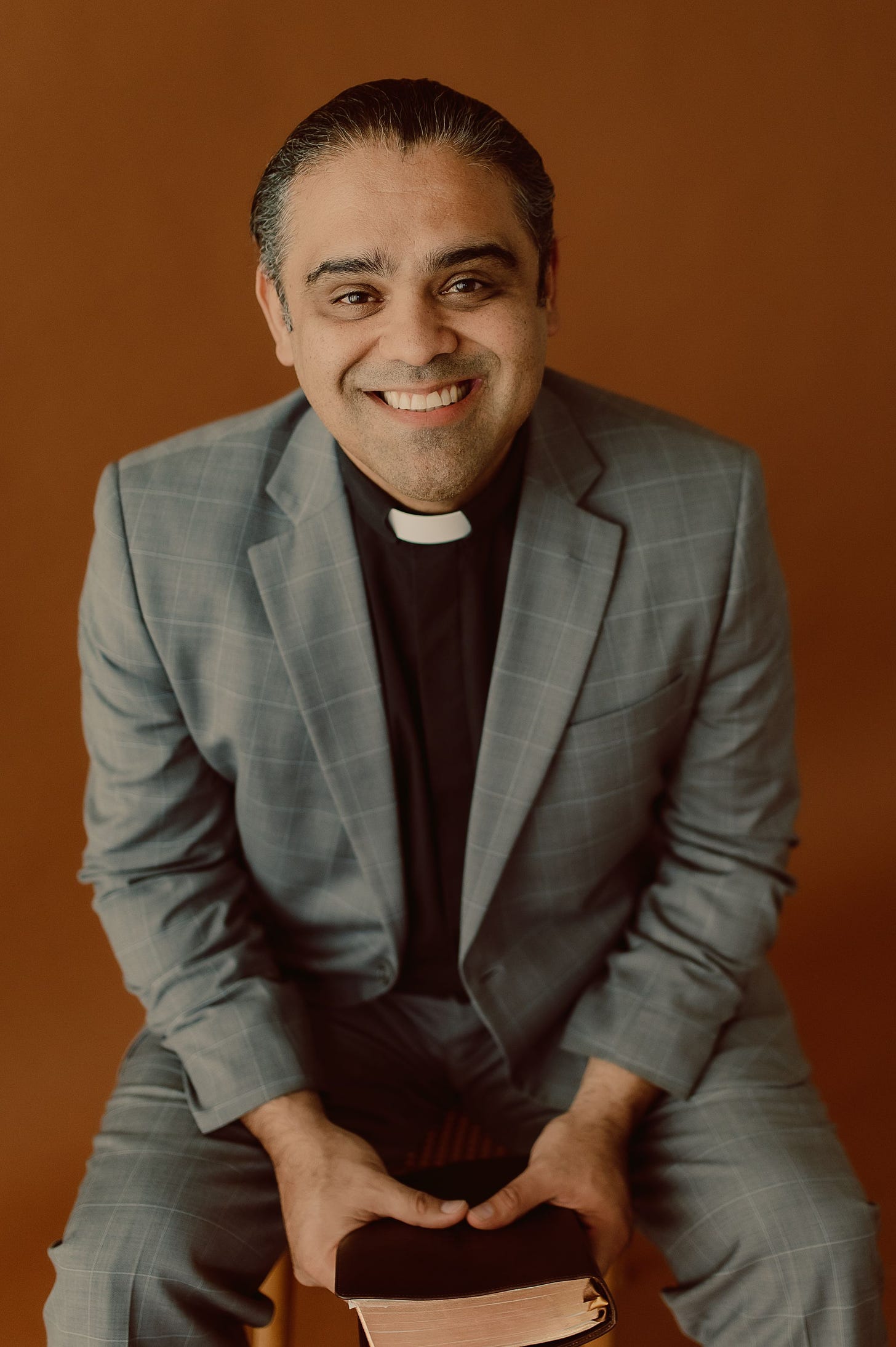Christmas is a feasting season for the Church! We saturate our calendars with festivals that reflect this titanic shift in civilization. When Jesus enters time, he restructures time; when the God/Man enters history, he restructures history. The world cannot be the same in any historical, sociological, or ecclesial fashion because the incarnation changes everything.
Jesus does not come in ghostly form but in human flesh. As John Stott notes:
“He who made man was now learning what it felt like to be man.” So, the Christian faith is a fleshly faith. We are a people rooted in a flesh-bound religion, not only in this world but in the world to come when our bodies will become incorruptible. But what kind of impact is it if Christmas is not really changing the nature of history? We want a faith that changes the institutions of society.
It is hard to fathom how denominations that were once so loyal to the Scriptures are now debating whether self-identified homosexual men can be ordained into the sacred office of ministry. People love Christmas until it begins to challenge their ethics. Every phase of Church history allows us to think through our present crisis.
Christmas Re-Focused
A proper view of Christmas forces us to think carefully through John’s words that men love darkness rather than light because their deeds are evil (John 3:19). Evil develops subtle categories of darkness. Evil makes us debate whether it’s truly dark, critical theory dark, or an IPA dark. The entire thing is a travesty of epic distortions, proportions, and portions. It’s all calculated to make you think Jesus is dubious, the church is evolving, and the future is uncertain.
Christmas exists because evil exists. And the incarnation means that evil has an opponent greater than Moses, greater than David, and greater than John himself. The babe in the manger is the true conqueror of evil.
But we cannot be so triumphalistic to think that the work of Christmas is a walk-on part in the war. Evil seeks whom he may devour. Evil is a violation of God’s shalom in Christ. It is real, whether Buddhist monks think it exists or not. Evil is objectively proven every day. Our world is changing rapidly in evil ways. We are amusing ourselves to death so fast that our amusement has become a form of death. Birth rates are declining. Marriage rates are declining.
Why establish a covenant family when we can be DINK role models on TikTok? Why not satiate our hunger for meaning in endless entertainment, sleeping with as many partners as we want? Why stand up to evil agendas when we can all be nice to one another and play the “more-tolerant-than-thou” game?
Evil is here to stay until the end of this present world. God has never promised that evil would be extinct before Christ returns at the end of history. But how do we respond to the world in the next 500 years? Do we take the status quo as the norm? To borrow the old line: “If the ship is sinking, why polish the brass.”
What Hath Christmas to do with Babylon?
The Christmas message is not of a utopian society but the undoing of evil and the sanctification of history. This sanctification of history offers a distinct storyline that serves to undo the Babylonian captivity of the Church.
In this essay, I would like to briefly trace the historical epochs in the Bible and conclude with a few thoughts on how we should think about Christmas.
The Trajectory of History in Creation and Fall
History is a wonderful story of creation, fall, and re-creation. It is the story of Mara and Naomi, bitterness and pleasantness, valley to green pastures, death and resurrection. This is the pattern of history. The world began in glory and life. And when God made man, he said, “It is very good!”
Man was the culmination of God’s work of creation. He saved the best for last. He made man and then gave man a particular call to have dominion over all things. This call was not to be taken lightly. This was God’s charge to his image-bearers. Their call was to sanctify the world with God’s words and symbols. But the dominion mandate[1] became more complicated when man ceased to worship God as he should.
When man chose another god instead of the true God, he fell, and his worship was disoriented. In the garden, every song was a song of triumph, but after the fall, God introduced the world to the psalms of lament. Man was filled with grief. The grief came mainly from the result of his sin. It became so severe that the Spirit of God had to stop striving with man [2] because man was sinning continuously. They were engaged in all sorts of evil practices. God then destroyed the world with a worldwide flood because this is a judgment on sin, which mankind participates in at a universal level.
But God is a God of mercy. He saves eight people. Eight is the Bible’s symbol for the New Creation. He takes them and puts them in a new land. The first thing they do in this new land is put up an altar and worship God. This pattern is all over the Bible. Before God’s people go to war or when they enter a new world, they gather and worship. Corporate worship was always at the center of the Hebrew life. And it is the same in the New Covenant, where God tells us to meet on the Lord’s Day.
History then progresses with many episodes of ups and downs. The Northern and Southern Kingdoms of Israel fell, and great was their fall. Compromise marked their stories, but God promised to unite Israel under one King. Certain kings remained loyal for a time, and God used them mightily. He built empires through them. He gave them wisdom never known to man. He gave them mighty power and used them to defeat tyrants and wicked men. He destroyed lands and protected Israel again and again from destruction. But in the process, Israel forgot to give thanks to God and abandoned God again and again. They became ungrateful, and God despises ungratefulness. They bowed before images, and they crafted gods of their own imaginations. They gave themselves over to immorality of all varieties. “But God,” repeatedly, brought judges, men of great might, to deliver them and give them hope. He brought Samson, the warrior Judge who drove away the Philistines and crushed serpents' heads.[3]
But Israel did that which was right in her own eyes. She trusted in chariots and princes rather than the Lord their God. Kings, rulers, princes, and men continued to fail in their mission to have dominion. Their duty seemed destined to fail, their labors seemed in vain,[4] and the hope and fears of all the years were not met in any Son of Adam.
The deplorable state of humanity towards the end of the Old Covenant era gave the “Left Behind Theorists” of the Ancient Near East a lot to discuss and many novels to sell. But the end was not yet written because now we come to the final part of history’s story. After Creation and Fall comes re-creation.
The New Creation
In the fullness of time, when the people sat in darkness for hundreds of years, God sent his son to be the light of the world. Christmas arrives in the Person of Christ. We are so optimistic about God’s work in the world and history because we believe in a God that came to us in the flesh. As James Jordan puts it: “In Jesus Christ, humanity is put back on the track, the track of making a God-glorifying world.”[5]
As we look at the world, we see that there is still a tremendous amount to do before the glory of God fills the whole earth. But, of course, if we were left to our own devices, wisdom, patience, and strength, we would be doomed. We would be a people of no hope. But God has Pentecostalized us. He has given us his Spirit to guide us, and he has vindicated his only Son, Jesus Christ, and given him all power, authority, and majesty in heaven above and on earth below.
Because of Jesus and because of him alone, we are hopeful that this world is not destined for defeat but for the pleasure of God. Because of Christ, we know that what we are doing here as worshipers matters, and because of him, we know that the Bride of Christ will not fail in her mission.
While the biblical rationale leads to a trajectory of victory, there is also a historical perspective that will offer you proof of what I am trying to demonstrate. It is a long quote from the pen of David Field worth the price of this essay:
Evangelical defeatism is a failure of historical perspective. After all, the statistics are out there. It took 1400 years for 1% of the world’s population to become Christians, and then another 360 years for that to double to 2%. Another 170 years saw that grow from 2% to 4%, and then between 1960 and 1990 the proportion of the world’s population made up of Bible-believing Christians rose from 4% to 8%. Now, in 2007, a third of the world’s population confesses that Jesus is Lord and 11% of the world’s population comprises ‘evangelical’ Christians. The evangelical church is growing twice as fast as Islam and three times as fast as the world’s population. South America is turning Protestant faster than Continental Europe did in the sixteenth century. South Koreans reckon that they can evangelize the whole of North Korea within five years once that country opens up. And then there’s the Chinese church, consisting of tens of millions of Christians who have learned to pray, who have confidence in Scripture, who know about spiritual warfare, have been schooled in suffering and are qualified to rule. One day in the next century that church (tens of millions of Christians trained to die) will be released into global mission and our prayers for the fall of Islam will be answered.[6]
This may not convince you in the way it does to me every time I read it, but at the very least, it may cause us to reconsider our pessimism concerning the future of the Church in the world.
The promise of Jesus to reign until all his enemies are placed under his feet is not a promise of force; it is a promise of transformation. As the Gospel is being spread and the people of God live faithfully to their calling, God will fulfill the cultural mandate and restore the world to its rightful submission to King Jesus.
A Postmillennial Christmas
We don’t end the story with Christmas, but it is the only way to make sense of it. We can only make sense of history when the God/Man enters history. We are a Christmas people because we trust that baby Jesus came to become the man, Jesus, to become the ascended Jesus, who will become the coming Jesus at the end of history. We are being led by a Christ who is literally, bodily reigning over every molecule of the earth as we speak.
You may wonder, “Well, how long until we see this renewed world, how long until we see the Bride of Jesus victorious over heresy, how long until we see a Christian ethic in our society, how long until we see marriage and life honored, how long, O Lord?”
As long as it takes!
Christians are here for the long term; therefore, we need a future vision for us as a Church. What we do now matters. We may not see but a tiny bit of gospel progress in our day, but the tyrants of the first-century world only saw a tiny baby. But they overlooked that on that Christmas morning, all of history was restructured at the sight of a manger, and all of time was restructured at the sight of the little babe who came to rifle Satan’s fold.
And so, we feast!
Merry Christmas!
[1] See Genesis 1:26-28.
[2] You can read a longer analysis of this at the Theopolis Institute.
[3] See my lengthy series on Samson on wordmp3.com
[4] A wonderful play on I Corinthians 15:58. There is a section elaborating on Paul’s classic text in our commentary on Ruth published by Athanasius Press.
[5] Antidote to Yuppie Postmillennialism by James Jordan.
[6] Field, http://davidpfield.com/other/RutherfordCCS.pdf
Notations
My interview with Lennox Kalifungwa should be available today on the New Saint Andrews page:
For those following some of the holocaust denialism and the Hitler revival taking place among a few sub-cultures, here is an excellent response worth every single second.
Finally, this is a special offer to any pastor reading this.
It has been my privilege to host the 3rd Annual Strawbridge Ministerial Forum. All Saints Church (CREC) was the home of my beloved friend, Gregg Strawbridge, who died almost three years ago. The congregation has continued that legacy of pastoral training under the leadership of Re. Kasey Horvath. This training is limited to no more than 25 pastors or pastoral interns. We may have a couple of open seats. If you are interested, please let me know.
It has been a privilege to engage you all twice a week for the Perspectivalist!
I wish you a Merry Christmas!
Uriesou T. Brito
FOLLOW ALONG
FACEBOOK / X / YOUTUBE / INSTAGRAM
PODCAST / KUYPERIAN / SUBSTACK






The postmillennial hope, Christus Vincit !!!
Encouraging!